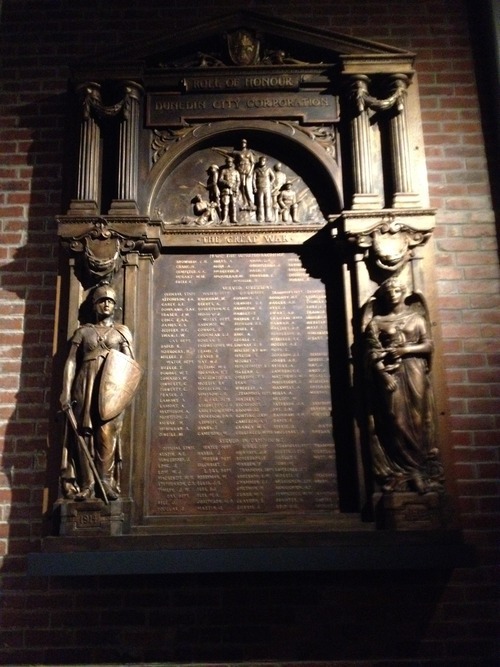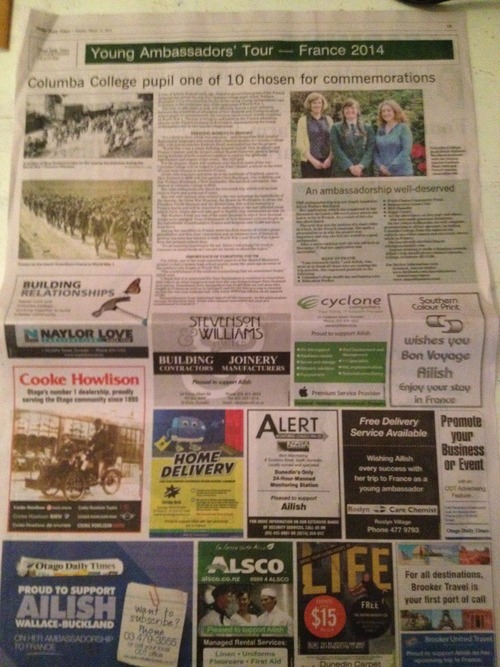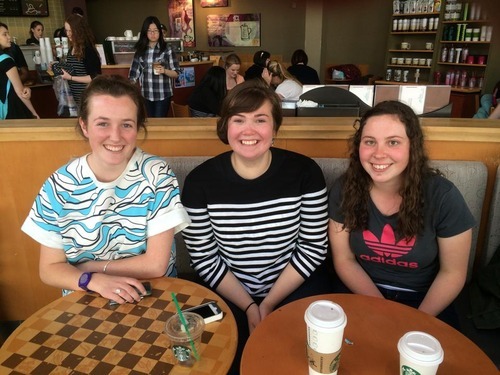Bonjour tout le monde! Mars était un mois très occupé pour moi! Ma évaluation de l'histoire était dû cette mois, donc plus de mon temps était dépensé travaillé à fini ça.
In History, our internal was to ‘Research an historical event/place of significance to New Zealanders, using primary and secondary sources’, and my topic was, of course, the First World War. I chose to focus my inquiry on a topic that I could use also for my Young Ambassador personal inquiry, so I researched ‘Soldier’s lives at the Western Front, and their communications’- focusing on censorship of communications, the case study of my great-grandfather’s cousins and the Somme, and the difference between New Zealand soldiers’ time at the Front compared to Gallipoli.
To help with our internal, my History class took a trip down to Toitu: The Otago Settlers Museum. We looked around their WW1 exhibit, and although it was small, they had a lot of little interesting pieces. The museum also has a plaque displaying the Dunedin Roll of Honour, and a room to the side of the exhibit that has black walls lined with the names of all of the men who have fought and died for their country from Dunedin- the majority of these names were of men who’d fought in the Great War.

I found an absolutely spectacular book to help with my internal- Behind the Lines-The lives of New Zealand soldiers in the First World War-, written by the same man whose thesis I had found at the Hocken Library (A social history of New Zealand soldiers in World War One, based upon their diaries and letters), Nicholas Boyack. Boyack’s thesis and book use primary quotes from real New Zealanders’ to present the reality of war for the men who were involved in it- something that I wish to imitate in my Young Ambassador’s inquiry.
In regards to my focusing areas, I found the concept of censorship very interesting, as there were many differing representations of the soldiers’ awareness of it/the presence of it in their communications. For example, Rifleman Hutton wrote, “It is a matter of considerable difficulty for any particularly interesting items about the war would be censored, so it would be a waste of time, energy and what is more precious still, pencil and paper, to say anything about it” (Behind the Lines), whereas Sergeant J.M. Russell gave a very descriptive account of a night during the Battle of the Somme- “…when daylight broke I found myself in the midst of a number of very dead Germans whose decomposing bodies were just a mass of crawling matter…”, (Behind the Lines).
I also found it fascinating how atypical my relatives’ experiences of the Somme had been- Alister had died very early on, and Ian was one of the many thousands who were wounded, and who later died of their wounds.


On the 17th March, the article about my trip was published in the Otago Daily Times, alongside advertisements that have helped with my fundraising.

And, most recently, on the 29th, I had the pleasure of meeting up with two of the other Young Ambassadors- Harriet and Emma-, we spent a couple of hours hanging out together, and talking about our projects, and of course, France!

So, March has indeed been an extremely busy month for me, but one in which I have made a lot of progress with in regards to my inquiry, and that I have discovered a whole lot of new information to delve into!
Latest from Ailish Wallace-Buckland
Related items
Media
1 comment
-
Comment Link
 Saturday, 19 April 2014 20:08
posted by Ruth Bourchier
Saturday, 19 April 2014 20:08
posted by Ruth Bourchier
Bravo Ailish! Ça bouge à Dunedin! C'est formidable que tu aies pu rejoindre Harriet et Emma. Je suis ravie de lire que tu fais beaucoup de progres avec ton enquete. Alister et Ian se ressemblaient beaucoup!
Bonne continuation!
Search
Who's Online?
The following members are online:
Latest Forum Posts
- No posts to display.
Powered by Technologywise / Design by yojodesign

